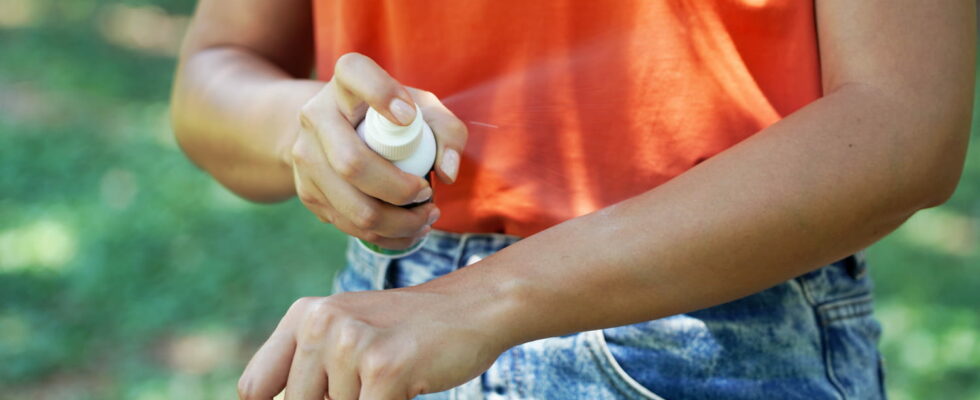This is the only way to effectively protect yourself from mosquitoes outdoors. Experts advise you on how to use it properly.
With summer in full swing and outdoor parties on the rise, mosquitoes are quickly becoming the unwelcome guests of our relaxing moments. These insects, in addition to being particularly annoying with their irritating bites, can also be vectors of diseases such as malaria, dengue fever or the Zika virus. While there are many tips for protecting yourself at home, what can you do when you’re outside? The only solution is to coat yourself with repellent. But you still need to know how to use it correctly.
For effective protection, it is important to choose a suitable repellent. “Products containing DEET, icaridin or PMD are among the most effective,” explains Dr. Jean-Marc Deschamps, entomologist and expert in tropical diseases. DEET (diethyltoluamide) is one of the ingredients most commonly recommended by public health authorities for its ability to repel a wide variety of mosquitoes.
The expert stresses that even the best repellent will be ineffective if it is not applied correctly. The key is to apply it regularly. If you apply it at night, it will only be effective for the first part, so you will have to reapply later. To make the repellent really effective, here’s how to do it. Apply it evenly to all exposed areas of the skin. “Don’t leave any area uncovered,” insists Dr. Deschamps. “Mosquitoes will find and exploit any gap in your protection.”

Use enough product to cover the skin, but not too much. Too little won’t be effective, while too much can cause irritation or skin reactions. The length of time a repellent is effective varies. “Generally, you’ll need to reapply every two to four hours,” he advises. Environmental conditions, such as sweating or swimming, can also reduce the duration of effectiveness, requiring more frequent application.
Federico Giovanni Gobbi, director of the Department of Infectious, Tropical and Microbiological Diseases of the IRCCS of Negrar confirms that repellents containing 20% DEET, for example, can act for about 6 hours. But be careful, it can irritate the skin and is not indicated for children under 6 years old. Repellents with PMD can be used on children, but must be applied more often. The same goes for products containing eucalyptol or geraniol: they have an anti-mosquito effect, but it is mild and must therefore be reapplied more often than the others.
“However, no repellent is infallible: over time they lose their effectiveness and interact with skin odors, so on some they may be less effective,” says the expert. He also insists that “skin repellents are not harmful if used in the manner and at the times indicated on the label and always avoiding applying them to irritated skin, cuts and scrapes.”
